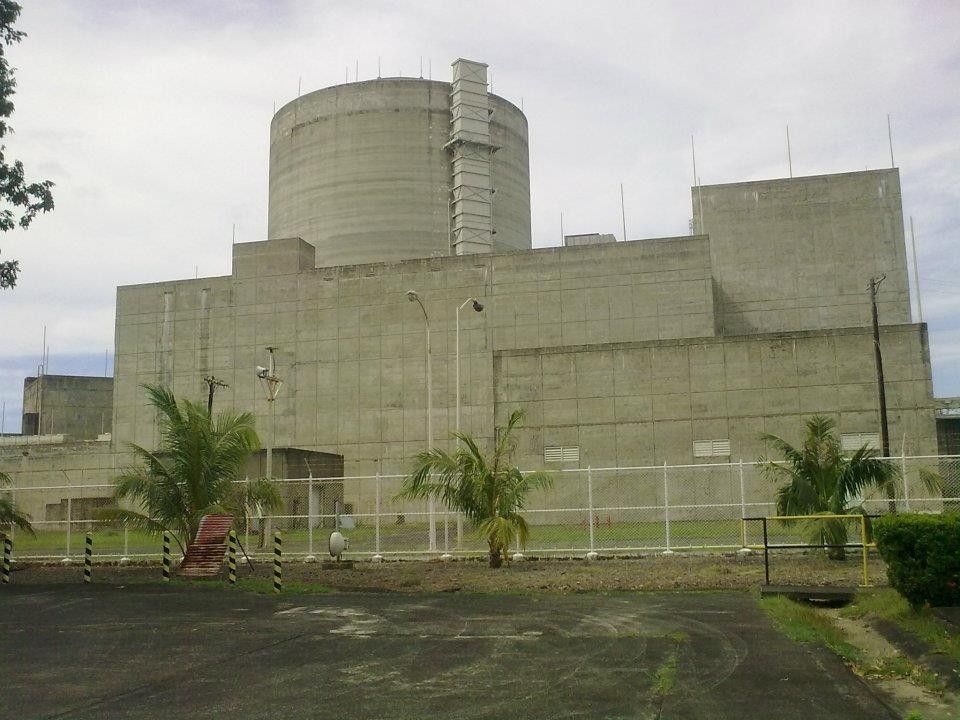Push for nuclear energy to face 'vibrant discussion' at Senate

MANILA, Philippines (UPDATED 5:46 p.m.) — The Senate majority bloc is still undecided on the administration's push to construct nuclear power plants around the country, pointing again to safety and funding concerns in one of President Ferdinand "Bongbong" Marcos Jr's pet projects.
To recall, the US Embassy in Manila said earlier that among the key outcomes of Vice President Kamala Harris' visit to the Philippines was the announcement of the launch of the 123 Agreement for negotiations for civil nuclear energy cooperation to help increase the Philippines’ energy security.
Senate Majority Leader Joel Villanueva told reporters Wednesday that he has his own reservations on it.
READ: How outcomes of G20, COP27 summits could affect Philippines' RE ambitions
Asked about the prospects of the Senate complementing the move, Villanueva admitted: "We are almost sure that every one of them will have their own opinion, position and we'll have a vibrant discussion on whether the Philippines should consider using nuclear power."
Villanueva said he is open to discussions on nuclear power but that he also has reservations about it.
"We are all aware that nuclear power plants contain radioactive material that is extremely harmful to humans and the environment. We also need to conduct a thorough evaluation of potential sites for the power plant and waste storage," he also said.
During the election campaign, Marcos said the country should look into reviving his father’s venture—the 621-megawatt Bataan Nuclear Power Plant, which was completed in 1984 but has been mothballed over safety concerns.
READ: Gas expansion a detour in Philippine transition to cleaner, cheaper energy
Both chambers of Congress are dominated by the president's allies but Senate President Juan Miguel "Migz" Zubiri has promised that the supermajority coalition would not be used to railroad the president's favored bills.
For Villanueva, a number of key questions still remain.
"Can this technology be efficiently utilized in an archipelagic country such as the Philippines?" he said. "Lastly, we expect this investment would cost billions of dollars. How we can afford these power plants, if the investment would be cost efficient, and how long it would take us to get a return on investment are questions that need to be answered."
"That being said, we are more open to exploring the use of modular types of nuclear plants for the country. Using small modular reactors could prove to be an affordable option and manageable in size and scale for the country."
READ: Makabayan bloc, scientists oppose US-PH civil nuclear deal
The "123 Agreement" aims to support collaboration on zero-emission energy and non-proliferation priorities. The agreement will allow the US to export nuclear equipment and material to the Philippines to help the country achieve energy security and transition to clean energy.
Scientists and advocates opposed to the idea say the deal poses a threat to nearby communities and is counterproductive to Marcos' supposed commitments to addressing climate change.
"Nuclear and fossil gas should be out of the picture today; it’s hypocritical to talk about addressing the climate crisis while prioritizing dangerous energy sources,” Greenpeace Philippines campaigner Khevin Yu said.
For his part, Sen. JV Ejercito brushed off safety concerns, saying "the safety protocols will strictly be followed...So many countries have successful nuclear energy programs."
"We really need to reconsider nuclear power. We need to bring down the cost of energy for our economy to be able to fully develop and at same time address the issue of climate change and global warming which will be both addressed by [shifting to] nuclear power," he said.
— with reports from Gaea Katreena Cabico
(Editor's note: This article has been updated to reflect that senators are expected to have differing views the proposal for a shift to nuclear power and that it will be up to debate at the Senate)
- Latest
- Trending































